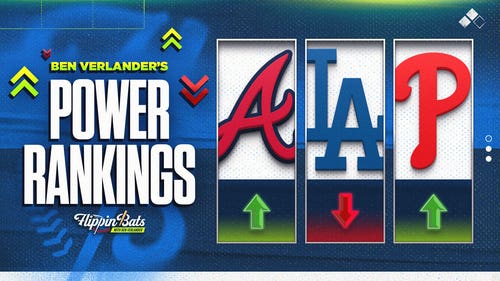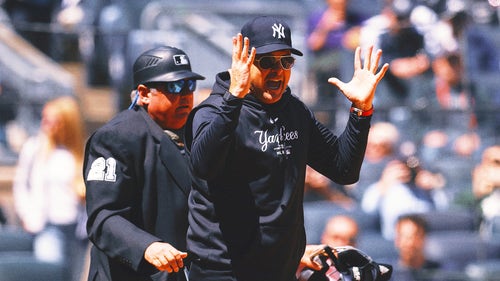





































































































































Deal: No written opinion in Braun case
Major League Baseball and its players' association decided there will be no written decision in the case overturning Ryan Braun's drug suspension, while also changing the rules that allowed the Milwaukee Brewers outfielder to get his 50-game penalty thrown out.
MLB and the union announced changes to their drug-testing agreement Thursday in the wake of the Feb. 23 decision by arbitrator Shyam Das to overturn the suspension that followed a positive test by Braun, the NL MVP.
As part of the deal, the sides agreed privately that Das will not issue a written opinion in the case, two people familiar with the deal told The Associated Press. The people spoke on condition of anonymity because of the sides' decision not to announce the lack of a written decision.
Braun's side argued his urine sample was handled improperly because the drug collector kept it at home from Saturday, Oct. 1, until the following Monday, when he took it to a Federal Express office for shipment to the testing laboratory outside Montreal. The drug policy stated that the sample was to have been delivered to a FedEx office immediately.
Das overturned the suspension and was to give a written opinion within 30 days, but the sides asked him to hold off. Management fired Das last month and replaced him this week with Fredric Horowitz, a veteran of baseball and NHL salary arbitration cases.
The sides agreed to several changes in the drug agreement in the wake of the Braun decision. Lawyers for the Milwaukee outfielder argued the collector from Compehensive Drug Testing (CDT) did not following the section of the joint drug agreement that stated ''unless instructed otherwise by CDT, the collector shall deliver the specimens to a FedEx office immediately following the completion of the collection.''
The new agreement replaces that language with ''absent unusual circumstances, the specimens should be sent by FedEx to the laboratory on the same day they are collected.'' It also says unusual circumstances may include ''inclement weather,'' ''a personal emergency,'' ''traffic accident'' or ''completion of the collection at a time when the collector was unable to reach either of the two FedEx offices identified by CDT prior to their closing.''
The new agreement contains language that says the suspension should be upheld by the arbitrator if the commissioner's office demonstrates ''the deviation was authorized'' by the parties or the Independent Program Administrator, or if ''the deviation did not affect the accuracy or reliability of the test result.''
During the grievance hearing, the collector testified he had followed the instructions given to him by CDT.
A new section details protocols for temporary storage in a ''collector's lock box'' that contains a cooling pack, and should keep it at his residence or a hotel room.
Das had been baseball's arbitrator since 1999.
The 63-year-old Horowitz has been involved in baseball salary arbitration, serving on three-member panels that decided cases for Dan Uggla, Hunter Pence, Ross Ohlendorf and Shawn Hill and against Mark Loretta, Wandy Rodriguez, Brian Fuentes and Sean Burnett. He also has been an NHL salary arbitrator.
Based in Santa Monica, Calif., Horowitz has been an arbitrator since 1999 and is past Southern California regional chair of the National Academy of Arbitrators. He is a 1970 graduate of the University of California, Berkeley, and a 1975 graduate of University of California Hastings College of the Law.
Among Horowitz's first tasks will be hearing the grievance filed by Guillermo Mota to overturn his 100-game suspension for a positive test for Clenbuterol, Mota's second violation of the drug agreement. When the penalty was announced for the San Francisco Giants reliever on May 7, Mota's agent, Adam Katz, said the positive test was caused by Clenbuterol in children's cough syrup.

2024 MLB Power Rankings: Who deserves No. 1 spot as Dodgers tumble?

Brewers' Jakob Junis hit by fly ball in batting practice, taken away in ambulance

DJ LeMahieu leaves 1st minor league rehab game in 2nd inning with sore right foot

20 Best pitchers in MLB 2024: Ranking the top 20 starters

Yankees' Aaron Boone ejected five pitches into game vs. A's after fan outburst


2024 MLB Power Rankings: Who deserves No. 1 spot as Dodgers tumble?

Brewers' Jakob Junis hit by fly ball in batting practice, taken away in ambulance

DJ LeMahieu leaves 1st minor league rehab game in 2nd inning with sore right foot

20 Best pitchers in MLB 2024: Ranking the top 20 starters

Yankees' Aaron Boone ejected five pitches into game vs. A's after fan outburst
